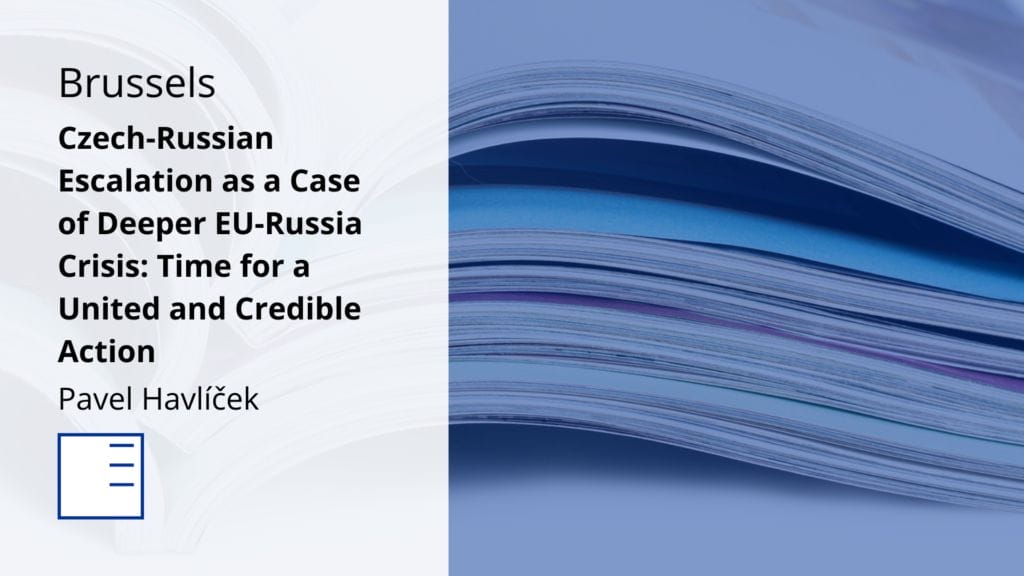Policy Paper: Czech-Russian Escalation as a Case of Deeper EU-Russia Crisis: Time for a United and Credible Action

In the past, the Czech-Russian relations went through periods of ups and downs. However, after April 17, 2021, as a result of the Vrbětice affair, they found themselves at the biggest crossroads to date. The bilateral escalation was followed by a dramatic diplomatic pressure and inclusion of Czechia to the list of Russia’s official “enemies" together with the United States, as the only two countries in the world. Nevertheless, for quite some time, the bilateral ties have pursued a negative trend and the attribution of attacks on ammunition depots on the Czech territory to Russia’s military intelligence GRU only brought the last nail to the coffin of the bilateral relationship.
It is essential to see the Czech-Russian crisis not as an isolated incident (or accident) but rather as a part of a wider series of crises between the West and Russia, of which this is just the most vivid example of how far things might go. Similar escalations have recently appeared in bilateral ties of Bulgaria, Germany, Poland, Spain, Lithuania or Ukraine and other countries too. They are a part of a deeper and more structural issue, which does not necessarily have anything in common with behaviour of individual European states, but rather Russia’s revisionist perception of the world. This fact is also connected to the Russian appetite to confront the West in order to regain its great power status for which an effort to undermine and divide the West is an obvious tactic.
For these reasons, the real turning point in the Western-Russian relations was the Kremlin’s annexation of the Crimea in 2014 and the continuing aggression of the Russian army and the so-called separatists in the Donbas, which is now - once again - being scaled up to an unprecedented extent. This has fully revealed that Russia is willing to start an open military conflict in Europe in the pursuit of its zone of privileged interests at the expense of closest neighbours. The continuous attack against Ukraine, of which we might be seeing a new phase right now, also clearly illustrated that Russia's invasion of Georgia in 2008 was not an individual act of aggression, but the first harbinger of more profound conflicts and crises between Russia and the EU and the West as such.






